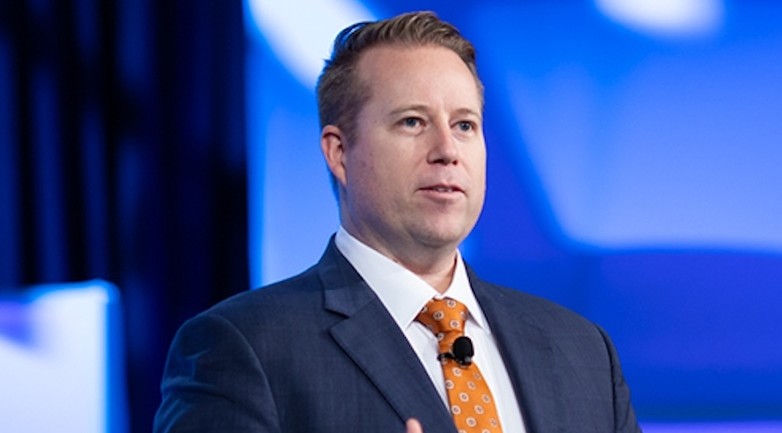Tariff costs, policy uncertainty prevent suppliers from investing in U…
main text
Tariff costs, policy uncertainty prevent suppliers from investing in US, MEMA says

MEMA
Shaw
Auto suppliers want to invest in the U.S., fulfilling President Donald Trump's goal to onshore manufacturing, but tariff costs and policy instability could hold them back, said leaders at MEMA, the trade group representing parts makers.
"Suppliers want to manufacture in North America and the United States, but to do that, we need to be profitable. And right now, we're not," said Collin Shaw, president of MEMA's original equipment suppliers group, at a meeting of the Automotive Press Association in suburban Detroit.
Shaw's comments underscore a perilous moment for suppliers as they adjust to new tariff policy. Suppliers are delaying investments and hiring because of higher costs, a lack of long-term policy clarity and increased pessimism about new-vehicle production levels and the health of the U.S. economy.
The tariff issues are compounded by other factors that the supply base has grappled with in recent years, including a skilled labor shortage and stranded capital as electric vehicle programs are scaled back or canceled.
"When you look at the profitability of the industry, nobody can afford this right now," he said.
Suppliers have become more pessimistic about their financial outlooks since the tariffs were implemented, supplier executive surveys conducted by MEMA show.
Three-quarters of suppliers said the tariffs make them much less or slightly less competitive in North America, compared with 12 percent that say tariffs make them more competitive, according to MEMA. Meanwhile, about seven in 10 suppliers said the tariffs make them less competitive globally, with just 4 percent saying they're more competitive.
Parts makers are also worried about the financial health of their sub-suppliers. According to MEMA, 85 percent of companies said they were moderately or substantially concerned about lower tier supplier distress because of tariffs.
The average number of sub-suppliers on parts makers' "watch lists" because of poor financial health rose to 5.6 percent as of May 2, up from 3.2 percent in 2024. That figure is approaching levels seen during the auto industry's semiconductor shortage in 2021 and 2022, when about 6 percent of sub-suppliers were on parts makers' watch lists.
"Once [financial distress] starts, it's very difficult to contain it," said Mike Jackson, executive director of strategy and research at MEMA.
Suppliers are paying close attention to automakers' product plan adjustments. Parts makers are heavily dependent on high production, and they're urging their customers to prioritize volume over profit margins as they manage tariff costs.
On average, suppliers need automakers to build about 14.5 million vehicles in North America to break even this year. The average breakeven point had been 14 million before tariff costs came into play, Jackson said.
Whether new-vehicle production reaches 14.5 million vehicles this year is an open question.
The industry made 16.03 million vehicles in North America in 2024, according to the Automotive News Research & Data Center.
S&P Global Mobility in April lowered its 2025 production forecast to between 13.9 million and 14.3 million vehicles because of the impact of tariffs on the auto industry and the broader economy.
"Production is down, new orders are down and costs remain elevated," Jackson said. "This is a very tough situation for the supplier industry."
The Trump administration has implemented tariffs in part to incentivize manufacturers to invest in the U.S. Suppliers share that goal, but tariffs and policy uncertainty have so far had the opposite effect, said Paul McCarthy, president of MEMA Aftermarket Suppliers. (McCarthy will become CEO of MEMA in 2026.)
"We need to remove barriers to reshoring," he said. "Some of the recent actions have actually made it harder to do that and made the business equation for reshoring a higher hurdle."
Shaw said MEMA's conversations with government officials have been "quite positive." He said the White House understands the financial stress the tariffs are putting on the industry and the auto tariff relief the administration gave automakers and its recent deal with China underscore that.
The U.S.-China deal, which lowered general tariffs for 90 days but kept auto duties unchanged, was particularly important, Shaw said, because China agreed to lift restrictions it had placed on rare-earth exports that are crucial to the auto industry.
"It was a pretty dire situation there, where the supply chain was struggling to get those materials out of China," Shaw said. "Getting that relief is very important to the supply chain."
MEMA's top priority in talks with the Trump administration will be advocating for a robust North American supply chain through the United States-Mexico-Canada Agreement, McCarthy said. The three countries are set to review the agreement in 2026.
"For the U.S. to be globally competitive, we need USMCA," he said.
* Edit : HANDLER
- PreviousEurope prepares to counter US tariffs 25.05.20
- NextDrop in European resin prices closely match fall in feedstock costs 25.05.20
